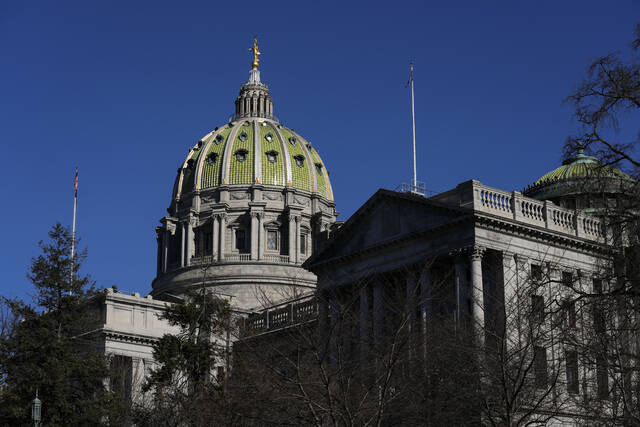https://staging.triblive.com/news/pennsylvania/senate-bill-could-limit-citizens-ability-to-make-right-to-know-requests/
Pa. Senate bill could limit citizens’ ability to make Right-to-Know requests

Six state senators are seeking to place a limit on the number of Right-to-Know requests that citizens can file with government agencies in Pennsylvania.
“Numerous entities such as state agencies, municipalities and school boards frequently report that they are overwhelmed by burdensome Right-to-Know Law requests,” said state Sen. Cris Dush, R-Jefferson County, who sponsored Senate Bill 525 along with four Republican colleagues and state Sen. Jim Brewster, D-McKeesport.
The legislation would charge the state’s Office of Open Records with subjectively determining whether a citizen filed a Right-to-Know request with what Dush called “vexatious intent.”
Dush was referring to people who he said bombard local governments with RTK inquiries.
In a memorandum on the bill, Dush said the issue is a top legislative priority for the state school board and township supervisor associations along with the Pennsylvania Municipal League, state association of boroughs and other groups whose members regularly grapple with such requests on a regular basis.
The RTK Law permits citizens to request publicly available records from government entities. The law lays out a process through which the group receiving a request may grant or deny it. Records must already exist in order to be requested — an RTK request may not ask for a document that must be created.
Frequent subjects of RTK requests include government contracts or emails between public officials related to a particular topic.
Melissa Melewsky, media law counsel for the Pennsylvania NewsMedia Association, said Senate Bill 525 is not the first of its kind.
“From a legal perspective, anytime we have an agency making subject determinations about who can access records and who can’t, that’s not ideal,” Melewsky said.
Barbara Hough Huesken, PNA’s director of legislative affairs, said the association generally opposes these types of bills.
“We have concerns about the constitutionality of this type of legislation, and we worry about how it will impede First Amendment freedoms,” Huesken said. “We submitted some (suggestions for the bill language) to the Senate, which were not incorporated. This particular bill, the way it looks today, is not something we’d be able to support.”
McKeesport’s Brewster, the only Democrat to co-sponsor the legislation, did not return a message seeking comment.
His district includes Monroeville, where more than 40% of RTK requests between 2009 and 2018 came from one person.
Former Monroeville Council candidate John Yakim submitted more than 500 RTK requests over the course of nine years. In 2018, the municipality considered hiring a part-time open records officer in order to fulfill the requests in a timely manner.
The same year, Yakim said the push to hire a part-time employee was an attempt to intimidate him for making legitimate inquiries. Yakim declined comment for this story.
“We understand some of the reasoning behind this,” Huesken said. “I know there are requesters who will go back repeatedly. But legislation like this can impede the ability of journalists and news organizations to do their jobs. It could create some significant interference with the press’ ability to gather and disseminate information about the government.”
Huesken said the PNA had approached legislators with a request for a media exemption.
“There was also a bill introduced by state Rep. Lou Schmitt Jr., where he’d pulled over some language from the vexatious requester bill, but did add a media exemption,” Huesken said. “That bill only made it through the House.”
The Pennsylvania chapter of the American Civil Liberties Union also opposes the latest Senate bill.
“If enacted, (the bill) would, for the first time in the 65-year history of Pennsylvania’s public records law, permit agencies to pick and choose which Pennsylvanians are entitled to access to public records,” ACLU officials wrote in a brief about the bill. “If a record is public, then it should be available to all members of the public — without exception.”
Melewsky agreed.
“At the end of the day, Right-to-Know is about a citizen petitioning their government, which is a First Amendment issue,” she said.
Senate Bill 525 is now in the Senate’s state government committee.
Copyright ©2026— Trib Total Media, LLC (TribLIVE.com)
